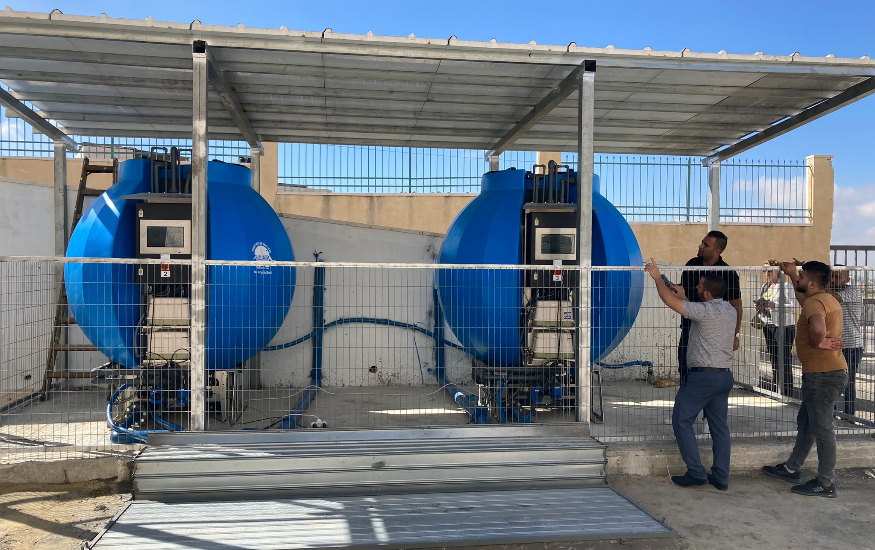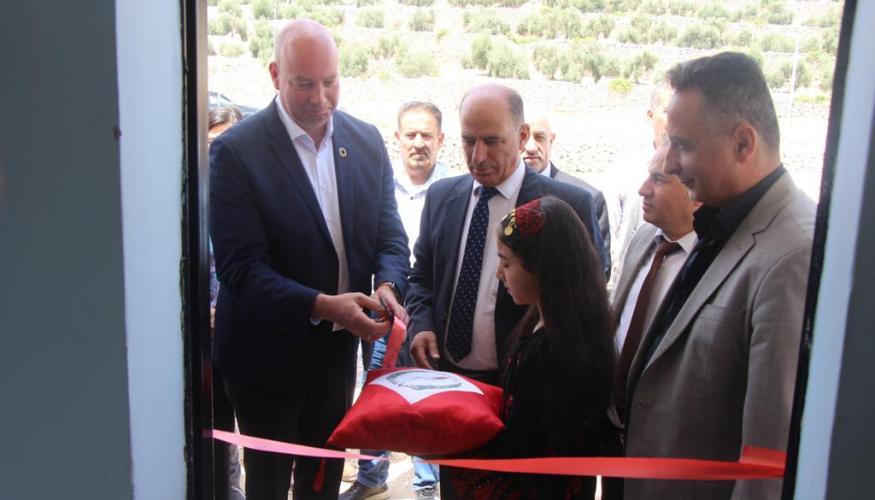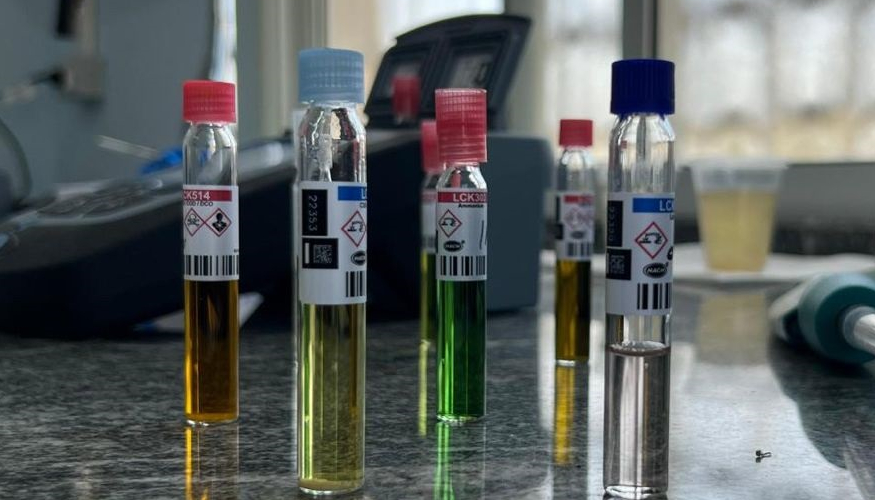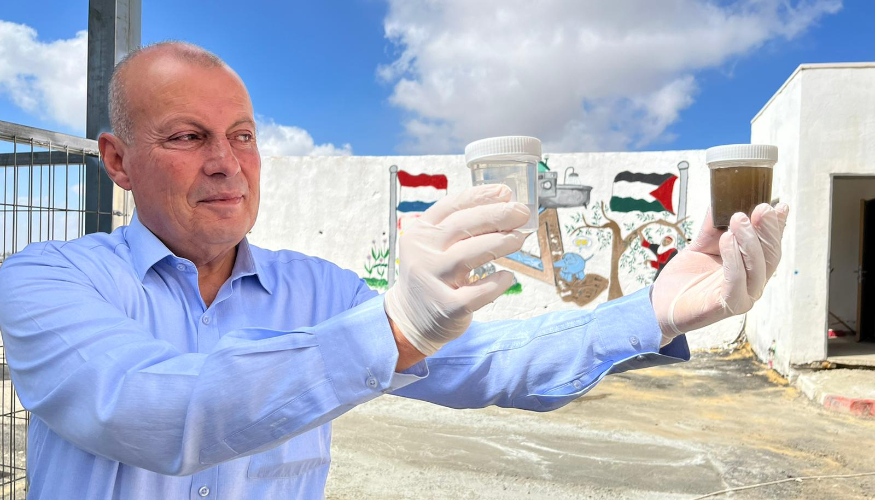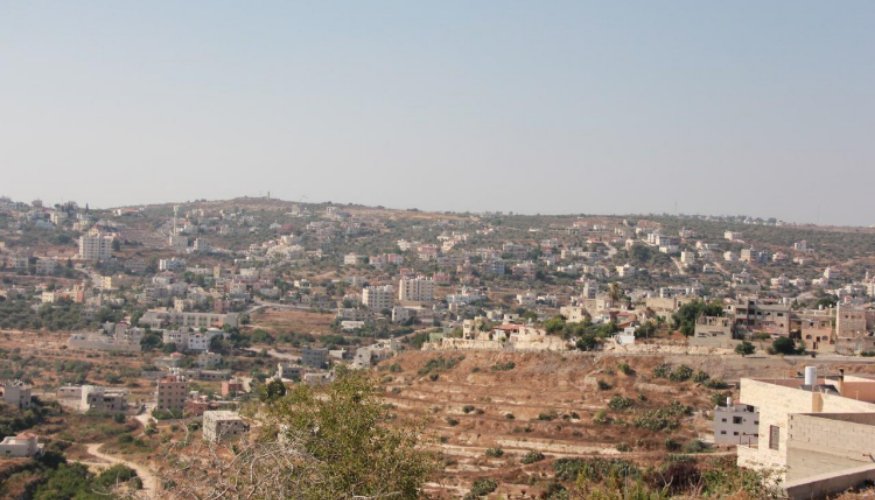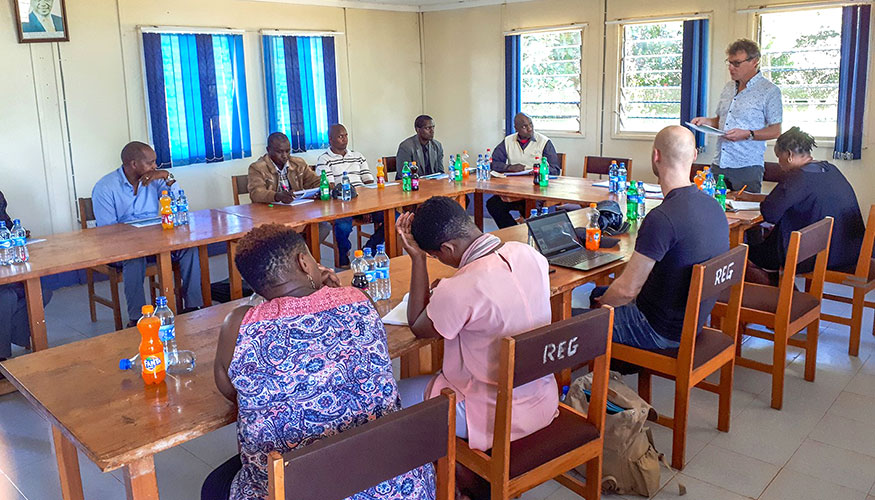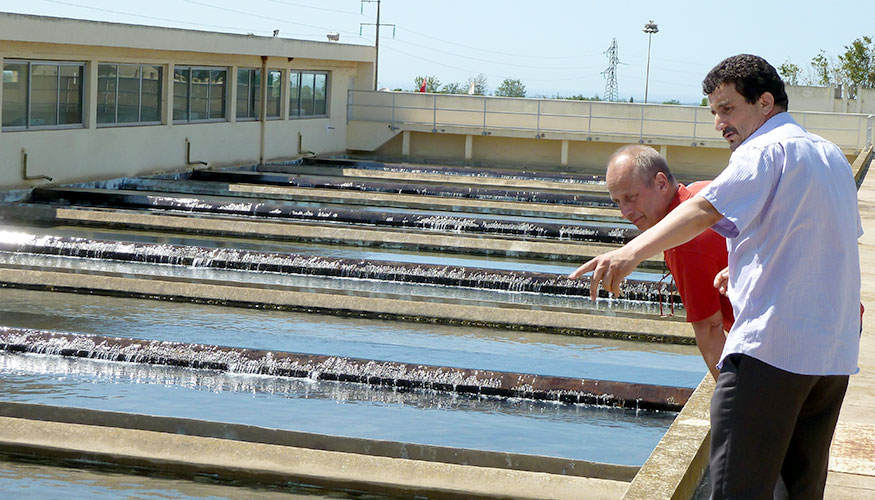Through the Blue Deal, Dutch Water Authorities works in 15 countries worldwide. Even in countries where intense conflicts sometimes arise. Like now in the Palestinian Territories, Mali, Ethiopia, and Burkina Faso. How and why does the Blue Deal continue to operate there? Water expert Frank Tibben says: "We continue to collaborate to improve access to sufficient, clean, and safe water. In good times and in bad."
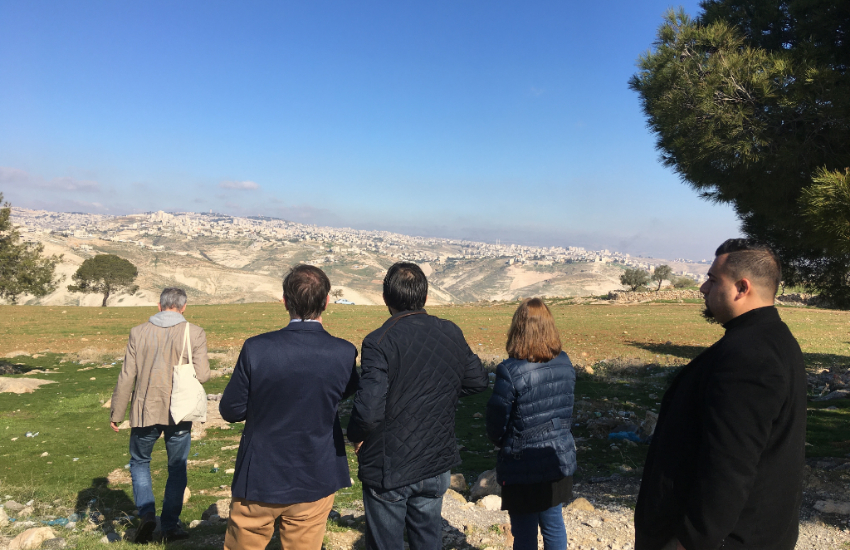
“Can I travel safely to and from my home? Will I still see my family again after this training?” These are questions Duaa Matar asks herself before deciding to travel to the Netherlands for training at the end of November 2023. Matar is a Palestinian woman working as a Young Expert Professional (Yepper) for the Blue Deal. She lives and works in the West Bank, in the Palestinian Territories.
The interview takes place in a coffee shop in The Hague, the day before she heads back home. A surreal experience as she talks about the war situation in her country. “It’s like I stood outside of reality for 2 weeks. I felt guilty for not being in my homeland. Physically I was here, but mentally I was at home.”
Political situation has changed
The Blue Deal is the international programme of the 21 Dutch water authorities, the Dutch ministries of Foreign Affairs and Infrastructure and Water Management, and water managers worldwide. The goal: to improve access to clean, sufficient, and safe water for 20 million people worldwide. That’s why the Blue Deal has formed 17 partnerships with water managers in 15 countries.
“In some of these countries, the political situation looked different when we started with the Blue Deal,” explains Frank Tibben. He is responsible for collective intelligence and strategic relationships at World Waternet, which works for the Blue Deal on behalf of the Dutch water authority Amstel, Gooi en Vecht. Some of the areas they work for in the Blue Deal, include conflict regions. Tibben also serves as the partnership manager for the Blue Deal in the Palestinian Territories.
Good and bad times
He continues: “We don’t construct infrastructure ourselves; we’re not an engineering firm or contractor. We support local water managers in carrying out their tasks. We do this through knowledge exchange in line with the Sustainable Development Goals (SDGs) of the United Nations. Dutch and local colleagues work in a hybrid manner, with short visits to the country or to the Netherlands as needed. This makes us flexible and allows us to continue, even when conflict arises. The work then often becomes more digital.”
“Within the Blue Deal, we form partnerships until 2030. A lot can happen in such a long period, positively or negatively. We continue to collaborate to improve access to sufficient, clean, and safe water. In good times and in bad,” says Tibben.
Long-term commitment
“Of course, sometimes I wonder: couldn’t we achieve much more in other, safer areas?” says Luzette Kroon. She is board member of the Association of Dutch Water Authorities and is responsible for the international portfolio and chair of the Blue Deal. “But that also means throwing away what we’ve built and abandoning our principles. We operate on the principle of long-term commitment. It’s precisely because of that long-term commitment that we can achieve things. That’s what makes us powerful.”
Pilots
How does the work of the Blue Deal continue in conflict regions? Matar talks about a pilot in Salfit, a city in the West Bank. “A smart system has been created here for monitoring water levels. We can remotely read and adjust the water level. This means the engineer in this area no longer needs to visit the location. It is a relief, because it is currently an unsafe region near Israeli settlements.” The pilot started 3 months before the outbreak of renewed violence.
Another example is the pilot with 3 BluElephants in the cities of Salfit and Halhul in the West Bank. These are mobile, decentralised purification plants that purify wastewater for reuse. Now that Palestinian colleagues in the West Bank can no longer safely travel to and from work, these installations ensure that wastewater continues to be purified.
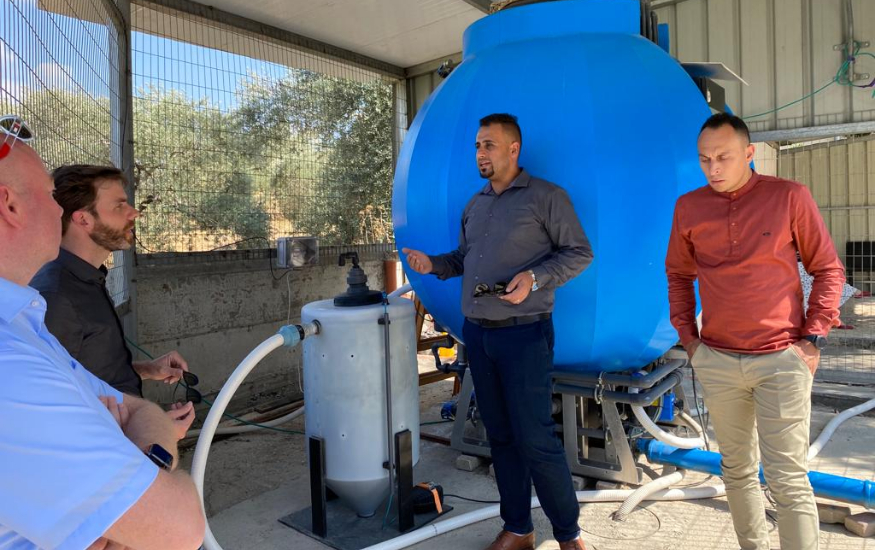
Working in neighbouring countries
In other conflict-affected countries, the Blue Deal also seeks creative solutions. Much of this involves thinking along and providing advice. From a distance. Tibben says: “It helps if the Dutch colleagues have already visited the locations and partners. Last year, for example, we were involved in Ethiopia in the construction of a wetland, a natural water buffer for wastewater treatment. This makes it easier for us in the Netherlands to provide digital support for the monitoring of the wetland and the construction of new wetlands.”
Other options are that Dutch and local colleagues meet in a safe neighbouring country. Or that local colleagues come to the Netherlands.
Continuous support
The Blue Deal team in the Netherlands and the team in the West Bank speak weekly. Digitally, which works well thanks to the experiences from the COVID-19 period. Matar says: “Our colleagues from the Netherlands provide us with continuous support. Every week, we assess what is realistic. We even made plans for 2024, although we don’t know exactly how the situation will develop.” Tibben adds: “Especially in difficult times, the long-term Blue Deal partnership focuses on sustainable water management.”
Kroon says: “In conflict areas, water management is so necessary. We work on solutions that fit the local context, focusing on local people. With the Blue Deal, we contribute to a bit of stability. The fact that our partner water authorities are still functioning indicates that our work is meaningful. As long as we achieve sustainable impact, we continue our work.”
This article originally appeared in magazine ‘Het Waterschap’. Read the original article in Dutch.

